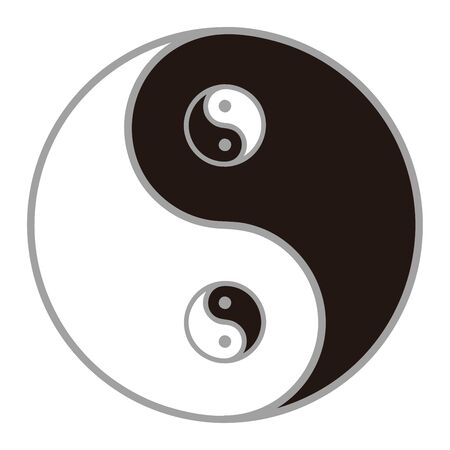Setting the Scene: The UK’s Fascination with Feng Shui
Step into a London townhouse or a countryside cottage and you might sense something quietly enchanting—the telltale placement of mirrors, the strategic arrangement of plants, or perhaps a trickling water feature humming in the hallway. Over the past few decades, Feng Shui has woven itself into the very fabric of British life, finding an unexpected home among winding terraces and contemporary flats alike. Once perceived as an exotic Eastern philosophy, Feng Shui now surfaces in everything from the boardroom layouts of Canary Wharf to the living rooms of suburban Manchester. Interior designers tout its benefits on morning television; estate agents reference “positive energy flow” when selling properties; even high-street shops stock crystals and compasses beside Union Jack mugs. Yet beneath this widespread adoption lies a subtle tension: is this cultural exchange at its finest, or are we witnessing a more problematic appropriation? Public perception dances delicately between curiosity and scepticism—some view Feng Shui as a mindful approach to wellbeing, while others dismiss it as mere trend or superstition. As British society grows ever more multicultural, these nuances shape not just our interiors but our collective consciousness, setting the scene for a deeper debate about respect, authenticity, and belonging.
Tradition versus Trend: Origins and Authenticity
Feng Shui, a practice rooted in ancient Chinese cosmology, is far more than a decorative trend. At its core, Feng Shui (風水) is an intricate system that harmonises individuals with their surrounding environment through the alignment of energies, known as qi. Its principles are interwoven with Daoist philosophy, astrology, and traditional Chinese medicine, dating back thousands of years. In contrast, the way Feng Shui is interpreted and practiced across the UK often diverges from these original teachings. The British fascination with Feng Shui has seen its wisdom adapted—and at times diluted—into mainstream culture, where it is frequently associated with rearranging furniture or selecting auspicious colours for interior design rather than engaging with its deeper spiritual underpinnings.
Aspect |
Traditional Chinese Feng Shui |
British Popular Interpretation |
|---|---|---|
| Philosophical Basis | Rooted in Daoism; focuses on cosmic balance and energy flow (qi) | Mainly aesthetic or psychological comfort; less focus on metaphysics |
| Methods | Complex formulas; use of Luo Pan compass; consultation of historical texts | Simplified checklists; advice from lifestyle magazines or social media |
| Cultural Context | Deeply tied to ancestry, rituals, and local geography in China | Often detached from cultural context; treated as universal self-help tool |
| Main Purpose | Spiritual harmony, health, and prosperity linked to family and land | Modern wellbeing, productivity, or home improvement trends |
This contrast raises questions about authenticity: does adapting Feng Shui to fit British tastes honour the tradition by keeping it alive—or does it risk reducing an ancient wisdom to a passing fad? For many British enthusiasts, there is a genuine sense of curiosity and respect for Eastern philosophies. Yet, without deeper understanding or guidance from authentic practitioners, what emerges can be a watered-down version that loses touch with Feng Shui’s spiritual roots. The debate continues as communities reflect on whether this exchange nurtures cultural appreciation or slips into appropriation.

3. Between Admiration and Appropriation
The boundary between genuine admiration and cultural appropriation is a subtle one, especially when it comes to the rise of Feng Shui in the UK. To some British practitioners, Feng Shui is a beautiful philosophy—a way to invite harmony into their homes, blending the ancient Chinese wisdom with contemporary British sensibilities. Take, for example, Martha from Brighton, who describes her journey into Feng Shui as “a respectful exploration.” She recalls consulting members of the local Chinese community before rearranging her living space: “I wanted to ensure I understood not just the rules, but the spirit behind them.” For Martha, it was about appreciating a culture that wasn’t her own, not simply adopting its symbols.
However, this experience is not universal. Mei Lin, who grew up in London’s Chinatown, has observed a different side: “Sometimes I see shops selling ‘lucky cats’ or red lanterns during Chinese New Year without any understanding of their meaning. It feels like our traditions are being used as decorations.” Mei Lin’s words echo a wider sentiment among many in the UK’s Chinese community—an unease that their cultural heritage is sometimes reduced to aesthetic trends or commercialised tokens devoid of context.
It’s in these everyday stories that the difference between respectful engagement and appropriation becomes clear. While some British enthusiasts make conscious efforts to learn from Chinese teachers and respect traditional practices, others may unintentionally cross lines by picking and choosing elements out of context. The ongoing debate reveals a collective longing for deeper connection—not just with the energies of space, but with each other’s lived experiences and cultural roots.
4. Media, Marketing, and Misunderstanding
Within the UK’s bustling world of media and interior design, Feng Shui has become a buzzword—appearing in glossy magazines, lifestyle programmes, and even on high street shopfronts. But as this ancient Chinese philosophy is reimagined for British audiences, its core principles are often simplified or even distorted for marketing appeal. The story usually unfolds like this: A trendy interior designer appears on morning television, waving around a bagua map and suggesting that moving your sofa could transform your love life. Or a popular homeware store launches a “Feng Shui Collection” featuring pastel cushions and bamboo plants that barely nod to the practice’s true depth. This remixing can create confusion, leading many to equate Feng Shui with mere aesthetic choices rather than a holistic system grounded in centuries-old wisdom.
The Commercialisation of Feng Shui
Marketing teams are quick to spot trends, and Feng Shui’s mystical aura offers an enticing narrative for British consumers seeking harmony at home. Yet this commercialisation walks a delicate line between cultural exchange and appropriation. When the deeper philosophies behind Feng Shui are overlooked, what remains is often just a stylised shell—devoid of context and meaning. Consider the following comparison:
| Traditional Feng Shui | UK Media/Marketing Version |
|---|---|
| Rooted in Taoist cosmology; complex theories about energy flow (Qi), directionality, and balance. | Focus on decluttering, furniture placement, and lucky ornaments for instant mood boosts. |
| Requires knowledge of compass directions, birth charts, and local environment. | Often reduced to generic advice—“put a plant in the east corner for wealth.” |
| Practiced by trained consultants over months or years. | Taught through quick magazine tips or DIY guides online. |
Cultural Sensitivity at Stake
This dilution raises important questions about respect and authenticity. While it’s natural for cultures to share ideas, there is a fine spiritual thread separating thoughtful adaptation from careless appropriation. When British media treats Feng Shui as just another lifestyle trend, it risks erasing its roots and the voices of those who have stewarded these traditions for generations. This isn’t simply about getting a few details wrong—it’s about how stories are told, whose perspectives are centred, and whether we’re truly open to learning from one another beyond surface level aesthetics.
Navigating Respectful Exchange
The British public stands at an interesting crossroads: Will we continue to accept watered-down versions of ancient wisdom for convenience’s sake? Or can we cultivate curiosity that leads us beyond catchy headlines into genuine understanding? The answer may depend on how willing our media makers and marketers are to move from remixing towards meaningful engagement—honouring both the spirit and substance of what makes Feng Shui more than just décor.
5. A Path Forward: Respectful Exchange and Dialogue
In the heart of Britain’s multicultural tapestry, the debate around feng shui offers an opportunity for growth, connection, and learning. To nurture a climate of mutual understanding, it is crucial to move beyond mere surface adoption and instead foster genuine engagement with the practices roots. This means inviting authentic voices—British-Chinese communities, practitioners, and scholars—to share their stories and knowledge, creating spaces where listening is as important as speaking.
Reflecting on Intentions and Impact
Reflection is key. Before rearranging a living room or consulting a feng shui expert, individuals should ask themselves: Am I honouring the tradition or simply seeking novelty? Engaging in honest self-inquiry helps ensure that actions are guided by respect rather than trend-chasing or exoticism. When businesses or institutions in the UK wish to incorporate feng shui principles, transparency about their intentions and collaboration with cultural experts can set a new standard for ethical practice.
Amplifying Community Voices
True cultural exchange thrives when communities are not passive sources of inspiration but active participants in dialogue. By supporting British-Chinese-led events, workshops, and educational initiatives, the wider public can deepen their appreciation of feng shui beyond aesthetics. Local councils and cultural organisations have a role to play in providing platforms for diverse narratives, ensuring that the British experience of feng shui reflects both heritage and contemporary realities.
Collaboration Over Co-option
The way forward lies in forging partnerships rooted in respect and reciprocity. Collaborations between UK-based designers, architects, community leaders, and feng shui practitioners can result in creative projects that honour tradition while resonating with modern British life. Such alliances do not erase cultural boundaries but celebrate them—turning difference into a source of strength and innovation.
As the conversation continues, let us choose curiosity over assumption, dialogue over division. In doing so, Britain’s engagement with feng shui can become a story not of appropriation, but of meaningful exchange—a journey shaped by reflection, community wisdom, and shared respect.

